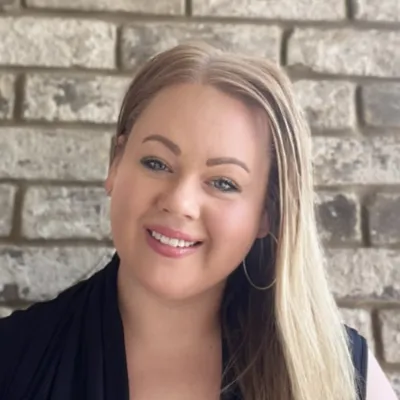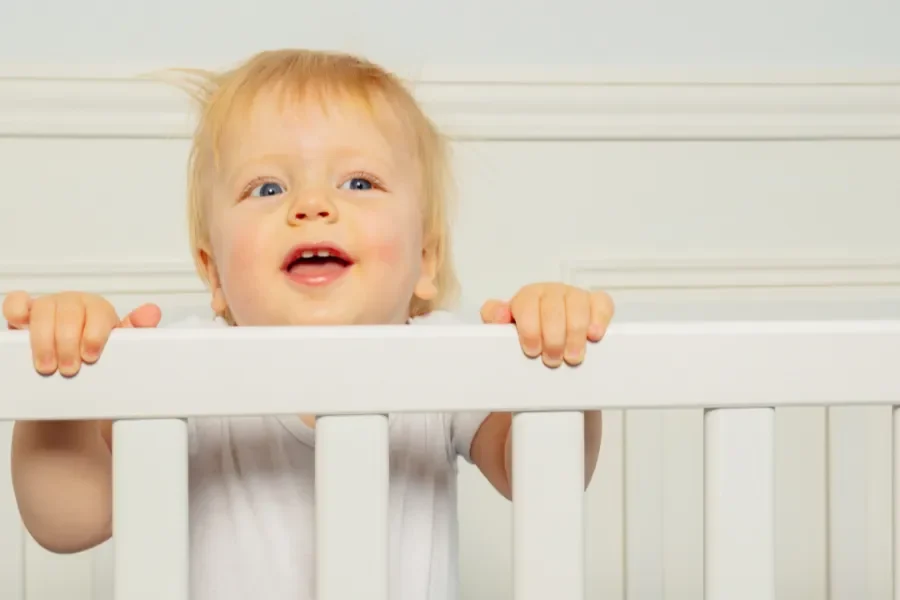You’ve spent the evening soothing your baby, following the perfect bedtime routine, and finally, they’re asleep. But just 30 minutes later, they’re awake again—what gives? This frustrating scenario is known as a “false start” at bedtime, and it can throw off your whole night.
Sign up to receive more tips for better sleep!
False starts are common, especially in babies and toddlers, but they can leave you feeling exhausted and unsure of what to do next. In this blog, I’ll explain what causes false starts at bedtime and, more importantly, how to stop them so your baby (and you!) can enjoy a full night’s rest.
What Is a False Start at Bedtime?
A false start is when your baby goes to sleep, only to wake up shortly after—often within the first hour of being put to bed. Instead of settling into a long, restful sleep, they seem to “reset,” needing help to fall back asleep again. This can disrupt your evening and make it harder for your baby to transition into a full night’s sleep.
Common Causes of False Starts
There are several reasons your baby may experience false starts at bedtime. Identifying the cause is key to finding a solution.
1. Overtiredness
An overtired baby is more likely to experience fragmented sleep. When your baby is awake too long before bedtime, their body produces stress hormones like cortisol, making it harder for them to settle into a deep sleep.
2. Under-tiredness
On the flip side, if your baby hasn’t been awake long enough between naps, they may not be quite ready for bed, leading to early wake-ups shortly after falling asleep.
3. Sleep Environment
Light, noise, or discomfort in the sleep environment can also cause your baby to wake up shortly after going to sleep. Ensuring a dark, quiet, and comfortable space can help your baby transition into a more restful sleep.
4. Hunger
Sometimes, false starts can be a sign that your baby didn’t get enough to eat before bed, especially during growth spurts. Ensuring they have a full tummy before bedtime can help minimize those early wake-ups.
5. Developmental Leaps
Babies go through periods of rapid development, and these “leaps” can impact sleep. False starts are common during phases like learning to crawl, walk, or talk as your baby’s brain is busy processing new skills.
How to Stop False Starts at Bedtime
The good news is that you can reduce or eliminate false starts by addressing the underlying cause. Here are some tips to help your baby sleep more soundly.
1. Adjust Wake Windows
Take a close look at how long your baby is awake between their last nap and bedtime. If your baby is overtired, try putting them to bed earlier. If they seem under-tired, consider extending their wake window by 15-30 minutes to ensure they’re ready for sleep.
2. Fine-Tune the Bedtime Routine
A consistent, calming bedtime routine can signal to your baby that it’s time to wind down for the night. Make sure the routine is predictable and soothing—things like a warm bath, dim lights, and gentle rocking can help your baby feel ready for bed.
3. Check the Sleep Environment
Create a sleep-friendly space by ensuring the room is dark (blackout curtains can help), quiet, and at a comfortable temperature. A white noise machine can block out sudden noises, and a sleep sack can keep your baby cozy without the risks associated with blankets.
4. Ensure They’re Well-Fed
If you suspect hunger may be causing false starts, try offering a feed at the beginning of the bedtime routine to tide your baby over through the night. Make sure feedings are calm and don’t overstimulate your baby.
5. Be Patient with Developmental Leaps
If your baby is going through a developmental leap, false starts may be inevitable for a short period. While these phases can be tough, they usually pass on their own as your baby adjusts to new skills. Stick with your routine and offer extra comfort if needed.
False starts at bedtime can be frustrating, but with a few adjustments, you can help your baby settle into a more peaceful and consistent sleep. Whether it’s tweaking wake windows, ensuring a calm bedtime routine, or creating a sleep-friendly environment, these changes can make a big difference.
If false starts continue to be a challenge, I’m here to help. Feel free to reach out for personalized sleep support and solutions tailored to your baby’s needs. Together, we can help your baby achieve better sleep—for happier, healthier nights.

